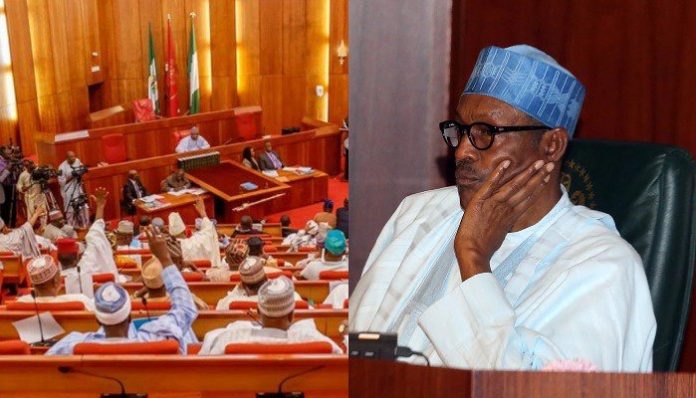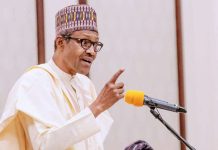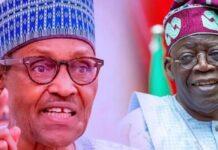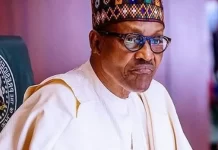
Recently, the Federal Government announced its readiness to abolish state/ Local Government joint account, thereby giving financial autonomy to local councils.The move by the Federal Government to abolish state/ local government joint account in order to stop the diversion of local government allocations by state governments under the guise of joint account principle has continued to generate ripples among the stakeholders across the country.
While some stakeholders described the action of the Federal Government as a long overdue right step in the right direction, others hold that the plan will be a total breakdown of law and order in the country.
Not comfortable with the continuous misuse of cash allocated to councils across the country by state governments through the State Joint Local Government Accounts, SJLGA, the Federal Government had recently outlawed the meddling of states in council allocations via the newly inaugurated Financial Intelligence Unit, which was excised from the Economic and Financial Crimes Commission.
The government, after taking the necessary measure and put things in place projects towards June 1, 2019, as the take-off date for the new order, making it compulsory for all LGA allocations to go straight to their respective bank accounts without seeking approval from any governor.
The decisions to stop local government allocations from going to state accounts are contained in the guidelines released by the NFIU after a lengthy meeting with officials of commercial banks in Abuja, recently.
The guidelines, according to NFIU, would only make the joint account system currently in use to exist for the receipt of allocations from the federation account but not for disbursement.
The notice entitled, “Guidelines To Reduce Vulnerabilities Created by Cash Withdrawals from LG Funds throughout Nigeria, effective 1 June 2019,” is said to have been prompted by threats by international financial watchdogs to sanction Nigeria because of recurring financial abuse.
The NFIU, which warned banks to comply with immediate effect, threatened to sanction any bank that flouts the order, saying, “The NFIU requests all financial institutions, other relevant stakeholders, public servants, and the entire citizenry to ensure full compliance with the provisions of the guidelines already submitted to financial institutions and relevant enforcement agencies, including full enforcement of corresponding sanctions against violations from June 1, 2019.”
Prior to this development, despite constitutional provisions that specify the powers of each level of government in Nigeria, local government, the third tier of government which is essentially created to deliver services at the grassroots and bring governance closer to the people, has been subjected to total neglect and abandonment by almost all the states of the federation.
The division of power that is clearly enshrined in the constitution, was jettisoned by politicians who later used the local government administration in their respective states to settle political scores.
The problems of the local government administrations were mostly compounded by the unbridled interference of the state governments. In many cases, while elected council executives are dissolved by the state governments without due process, some are suspended for reasons that more often than not border on party politics.
Since local governments in Nigeria are not autonomous constitutionally, it is expressly difficult for them to exercise financial independence, hence the state governors have a stifling stranglehold on the local government system.
Before Now, Several efforts were made by successive governments towards ensuring that local governments enjoy autonomy which was thwarted by some “cabal” who do not want freedom for the local government.
According to a source, one of such efforts was the 1976 reform, which made local governments the third tier of administration. Reform measures were also included in the 1979, 1989 and 1999 constitutions.
Unfortunately, in spite of all these constitutional and financial provisions, local governments are still unduly controlled by various state governments, an action that has rendered them mere departments of the states.
Even, almost all the 774 local governments in the country have been converted to mere appendages of their various state governments where the governors appoint caretaker chairmen to oversee their affairs at their whims and caprices.
Political observers noted that the joint account system, which is jointly run by the state and the local governments, does not give them the opportunity to execute developmental projects in their areas of jurisdiction.
President Muhammadu Buhari recently said, “Apparently, it is corruption that led to the relegation of local governments to the grip of state governments over the years, thereby distorting and demeaning the real status of our federalism, with regards to devolving governance. A once vibrant tier of government, which occasioned development at the grassroots, has gone into oblivion, due to obvious reasons.
“I and my team are waiting patiently to receive reports from state Houses of Assembly so as to do the needful in the event that the current proposal for the review of the 1999 Constitution (as amended) comes to us for consideration and assent.”
With the recent development, no doubt, the Federal Government’s move has a legal hurdle to surmount as Section 162 (8) of the 1999 Constitution (as amended) empowers the states to distribute allocation to councils “among the Local Government Councils of that State on such terms and in such manner as may be prescribed by the House of Assembly of the State.”
Even, Obong Victor Attah, a former governor of Akwa-Ibom State, without mincing words, described the new order of direct allocation to local government as unconstitutional.
Attah said the development was like replacing one evil with another evil, though he agreed that governors would receive money and yet starve local governments and treat them as if they do not exist.
Whereas the former governor stated that federalism doesn’t work with the Federal Government relating directly with local governments, he averred that “Governors give Chairmen pocket money so that he can go and keep quiet. This is completely and totally wrong because the local government is the closest tier of government to the people.
“It has obligations and responsibilities to the people and it was not being allowed to perform the functions in any way because its funds were being seized by state governments. “But local government administration is purely and entirely the function of the state government.
“I am surprised (at the NFIU order) because Asiwaju Bola Tinubu was governor (of Lagos) with the Vice President Osinbajo as Attorney General when Obasanjo did that evil of seizing Lagos State local government’s funds.
“I joined them in the fight because they had also joined me in the fight for resource control.
“All these things are wrong and they all boil down to the fact that we are not operating a proper federal system.
“So, for how long shall we persist in this attitude of placing one wrong on another? Is it until the country explodes? Why don’t we just stop, put a halt to all these evil and have a rebirth, complete rebirth and a complete rethink of what Nigeria should be and how its federalism should be operated?” Attah asked.
Also, the Secretary to the Lagos State Government (SSG), Tunji Bello, disclosed that the Federal Government had no business allocating money to the local governments directly as such funds should be given to the states to determine how it would be disbursed.
Tunji Bello said, “It’s not the business of federal governments to dabble into the affairs of the local governments.
“The federation is between the federal and the states that is why the constitution must be amended to reflect that the federal and state should determine allocations. The money should be shared between the federal and the state.
“Give the state the money, let them do whatever they want to do with it. If they want to create 100 or even 1000 LGAs, it’s their business. Federal should not jump the state and start dealing with LGAs directly.
“It is not right. That is one of the problems of Nigeria today…”
He said the federal government was carrying some responsibilities it should have left for the states.
Most people that supported this decision, noted that the people at the grassroots will be the major beneficiary of the gesture.
A public analyst, Mr. Babatope Oluseun, disclosed that the only reason why some state governors are working against the decision of the federal government on this is to further concretize their access to the local government funds.
According to him, “What usually before this time is that the state governments removed only the teacher’s salary from the joint account created, and release the rest to the local government for their usage.
“That now gave the governors unhindered access to the local government money. That is why it is very difficult for them to let it go just like that. Most of them will just put their stooges to the position of caretaker in order for him to be able to manipulate funds coming to the local government.
Most of these governors will spend 8years before they decided to conduct a kangaroo local government elections. Now the government is proposing this, it is a good development and the people at the grassroots will be the major beneficiary.”
Despite the mixed feelings, the federal government through Nigerian Financial Intelligence Unit, NFIU, said it would not rescind its decision, saying that the June 1 takeoff date of the new regime on cash payment remains sacrosanct.
In a statement issued in Abuja, NFIU said it would not go back on its decision to ensure that all allocations to LGAs in the country must hit their accounts directly and any payment above N500,000 must be done via cheques or electronic transfer.
Kindly contact us @ Naijalivetv@gmail.com
Call or Whatsapp: 07035262029, 07016666694, 08129340000










